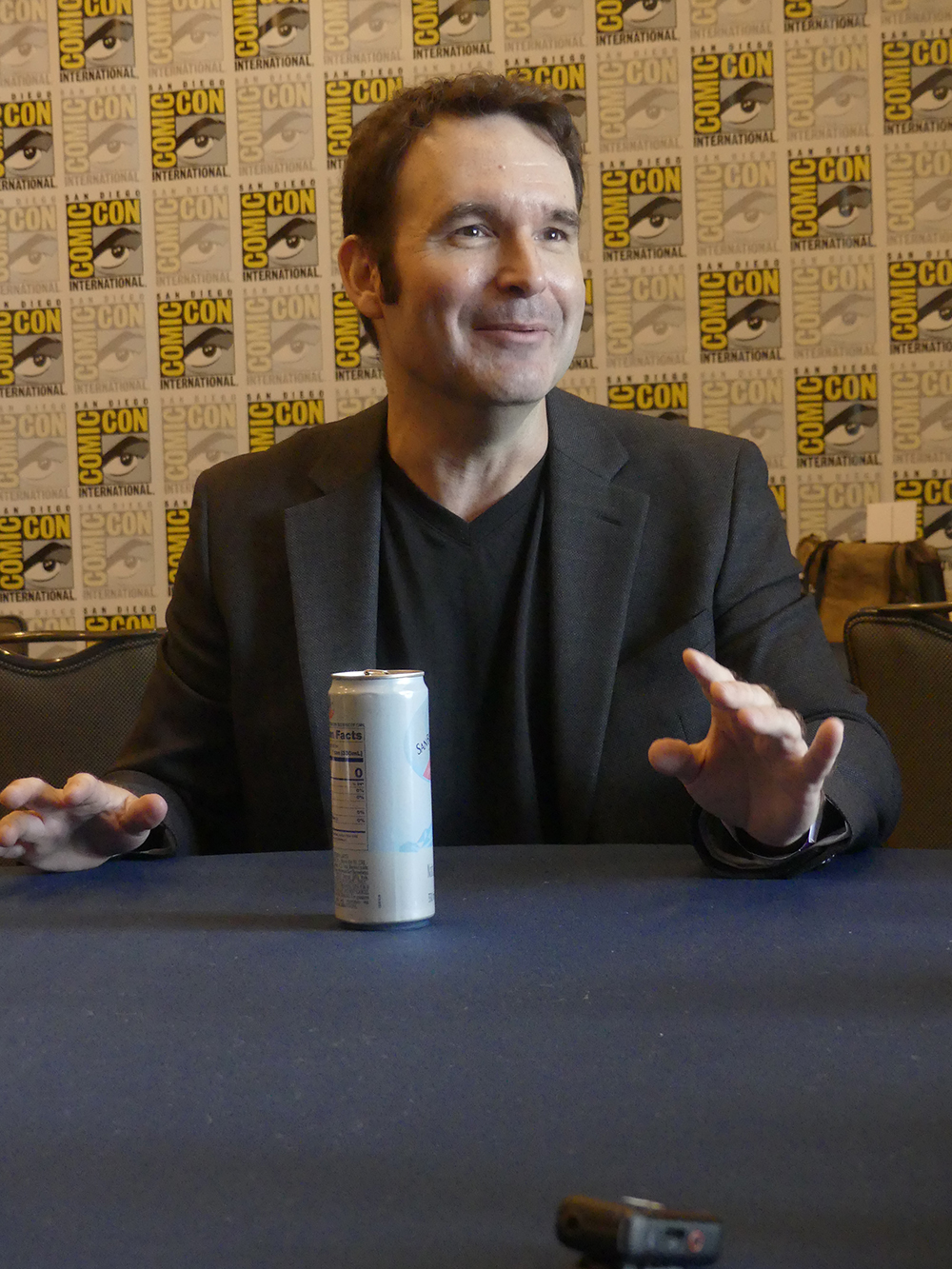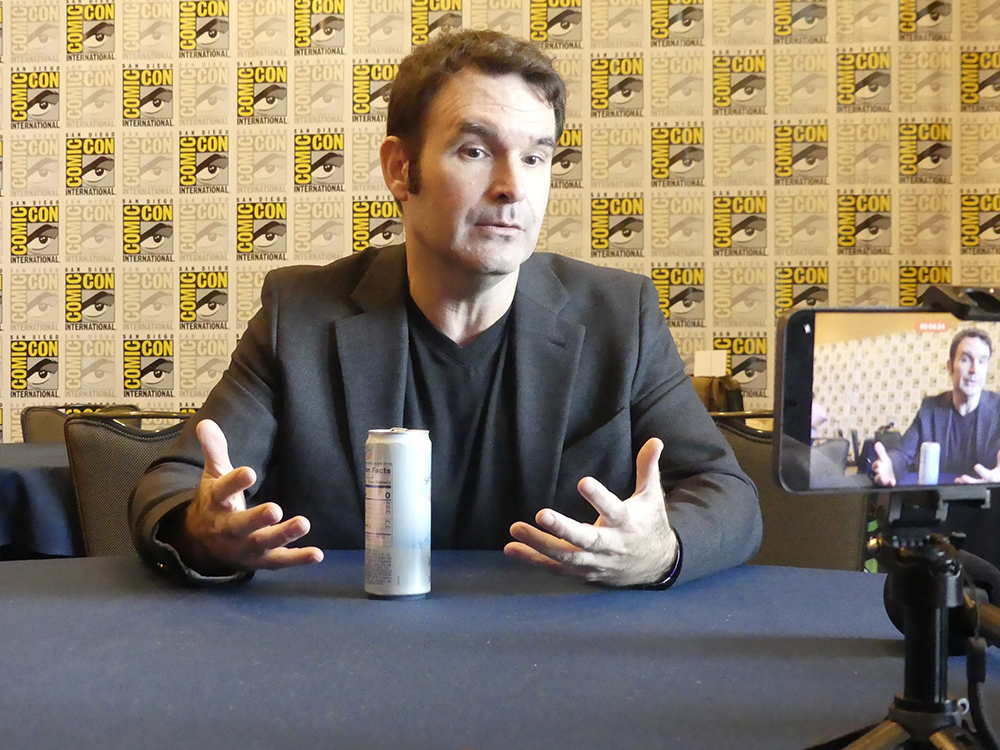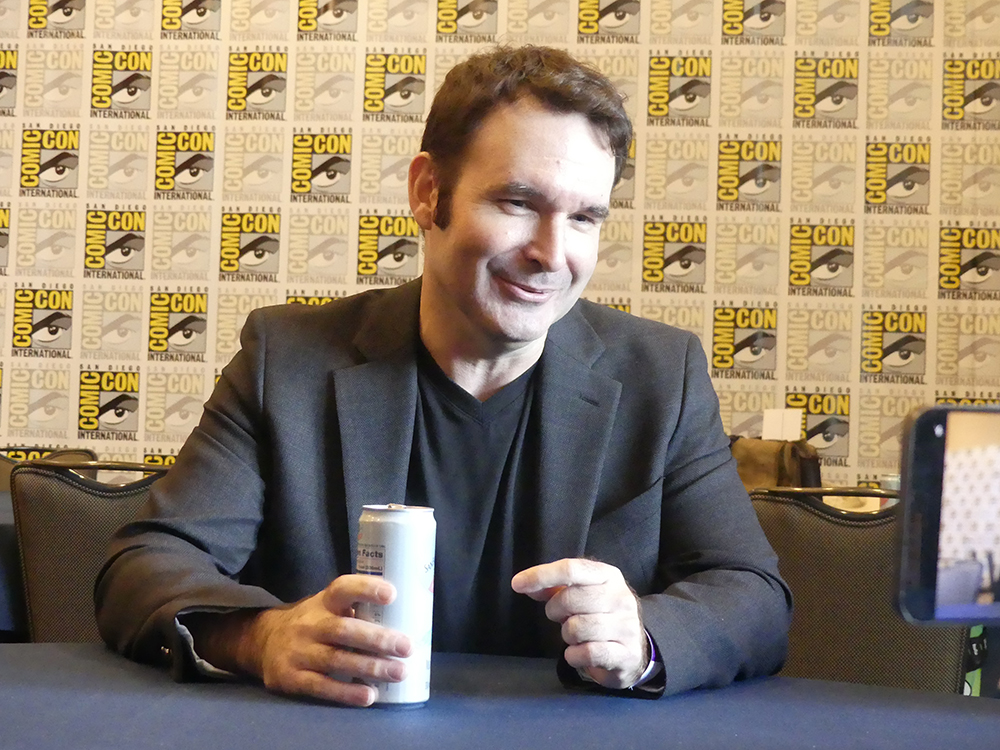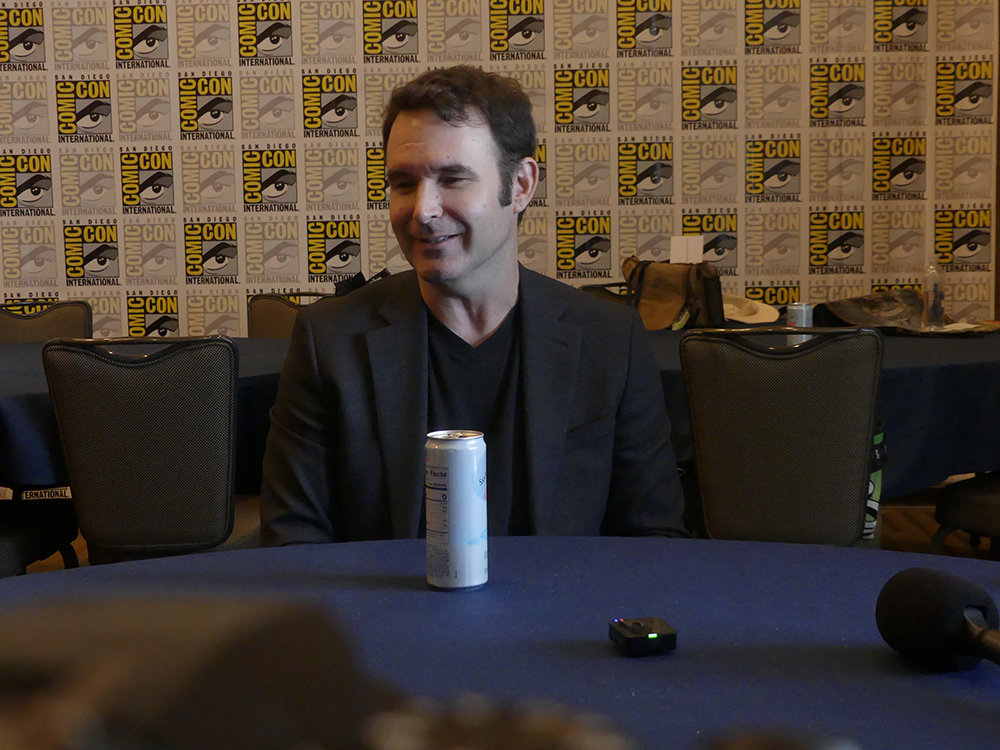Convention - SDCC 2025 : 11th Musical Anatomy of a Superhero – Brandon Roberts on Scoring Across Genres
By Mulder, San Diego, Hilton San Diego Bayfront Hote, 24 july 2025

On July 24, 2025, following the 11th Musical Anatomy of a Superhero and Other Heroes panel at San Diego Comic-Con, the Hilton San Diego Bayfront Hotel played host to an exclusive press roundtable with Emmy Award-winning composer Brandon Roberts. Known for his ability to navigate seamlessly between large-scale action epics, intimate documentaries, psychological horror, and genre television, Brandon Roberts brought to the table not just an impressive list of credits, but an equally compelling set of stories that shed light on the craftsmanship, collaboration, and adaptability that define his career.
Graduating from the USC Scoring for Motion Pictures & Television program, Brandon Roberts quickly found himself working under the mentorship of Oscar-nominated and Emmy-winning composer Marco Beltrami, a partnership that would evolve into one of creative synergy. Over time, they co-composed an impressive roster of projects, from the Academy Award-winning documentary Free Solo—where the music’s delicate balance between awe and tension elevated the visuals of climber Alex Honnold’s breathtaking feats—to major studio films like World War Z, Logan, Chaos Walking, and both installments of A Quiet Place. Reflecting on these collaborations, Brandon Roberts spoke about the importance of mutual trust in co-composition, emphasizing that the best creative partnerships thrive when both voices are allowed to shape the final score.

One of the most engaging parts of the roundtable was his discussion of Andor Season 2, for which he was most recently Emmy-nominated. Brandon Roberts described the unique challenge of blending Nicholas Britell’s established musical voice for the Star Wars series with his own contributions, ensuring that the soundscape remained cohesive while still introducing new emotional dimensions. He likened the process to “joining a band,” where the music has to honor what came before while still pushing boundaries. This approach, he explained, was informed by his deep respect for the Star Wars musical legacy pioneered by John Williams, while also embracing the grounded, character-driven tone that Andor is known for under Tony Gilroy’s direction.
Brandon Roberts’ range is perhaps best illustrated by the diversity of his recent work. In the same breath, he can speak about the pulsing action of Logan, the creeping dread of Pet Sematary: Bloodlines, and the chaotic fun of Eli Craig’s summer slasher Clown in a Cornfield. His music for Eli Roth’s Thanksgiving showcased yet another side of his versatility—embracing horror’s capacity for both suspense and spectacle. When asked about his ability to shift so fluidly between genres, he attributed it to a mix of instinct, research, and the willingness to immerse himself in the emotional DNA of each project.

He also spoke candidly about the ever-evolving role of a composer in today’s entertainment industry. While technological advances have opened new creative possibilities, Brandon Roberts stressed that the essence of the work remains the same: to serve the story. Whether it’s finding the perfect melodic theme for a character, shaping the pacing of a sequence through rhythmic choices, or crafting atmospheric layers that an audience might only register subconsciously, the composer’s role is about amplifying the narrative’s emotional impact without overwhelming it.
As the roundtable wrapped, it was evident that Brandon Roberts is not only a master of his craft but also a keen collaborator who thrives in the shared creative space between director, editor, and sound team. His career trajectory—from working under Marco Beltrami to becoming an Emmy-nominated composer in his own right—reflects both a dedication to growth and an openness to new challenges. Whether he is scoring the intimate tension of a character study or the grand chaos of a blockbuster, his music continues to demonstrate that the heart of great film and television scoring lies in adaptability, empathy, and the ability to translate human emotion into sound.

You can found in our Flickr page our photos here, here and here
Photos and video : Boris Colletier / Mulderville

